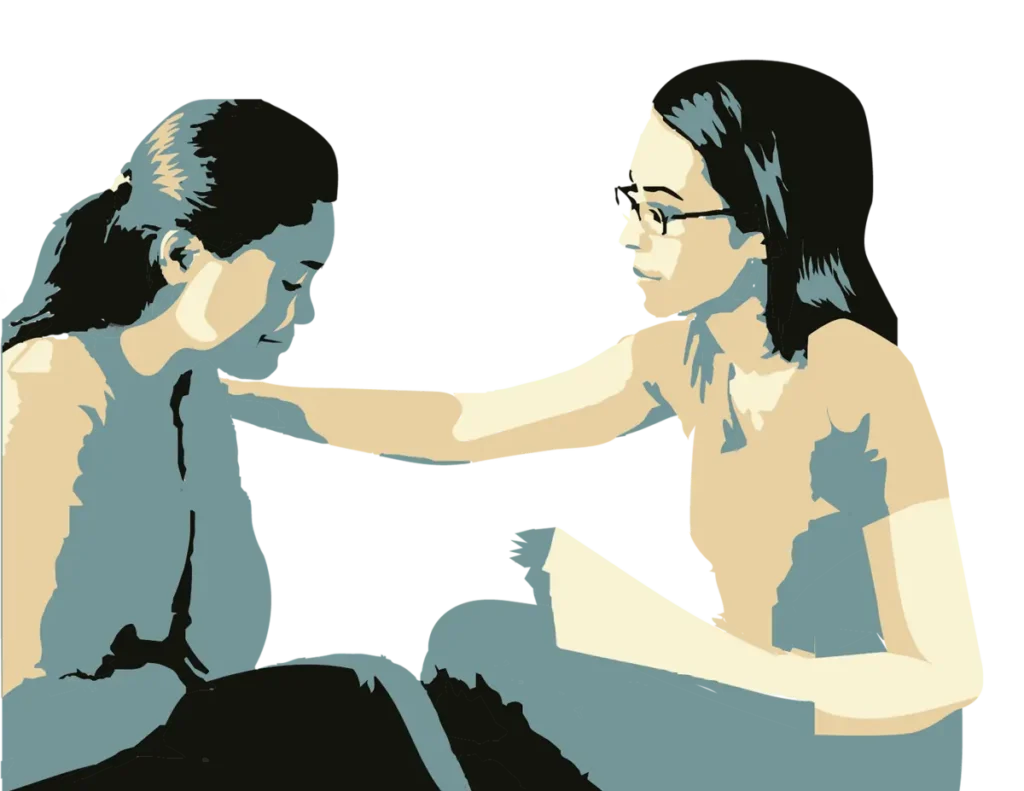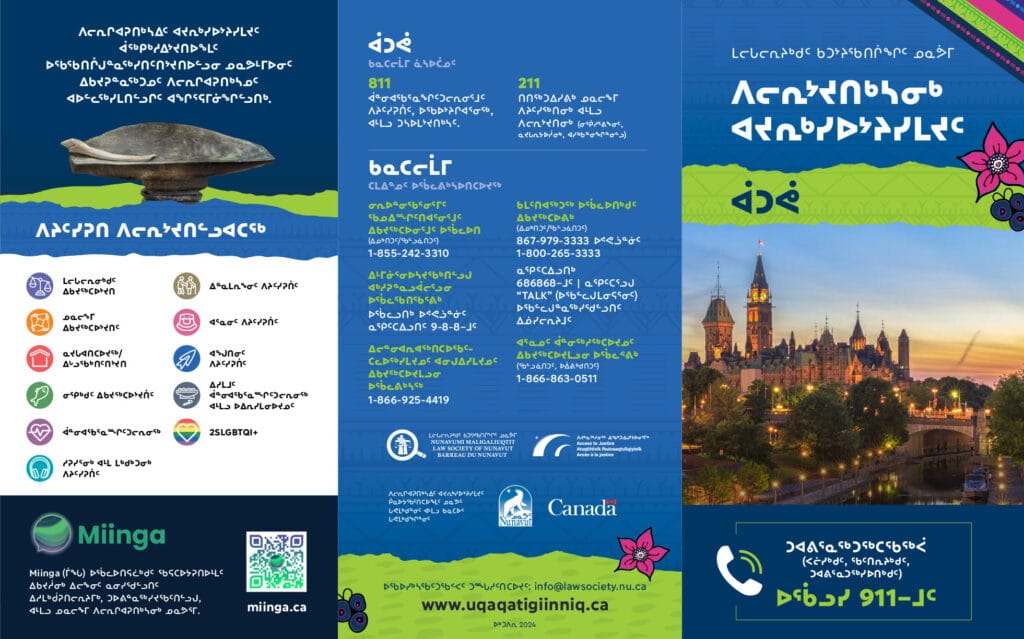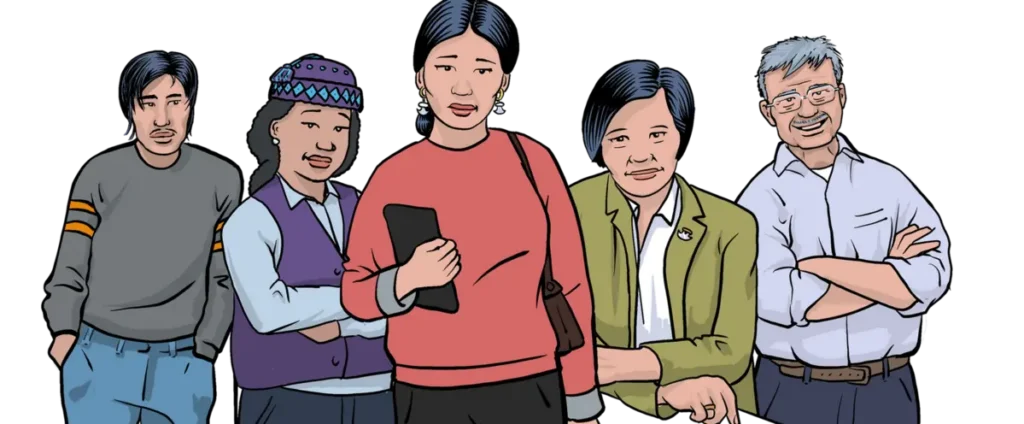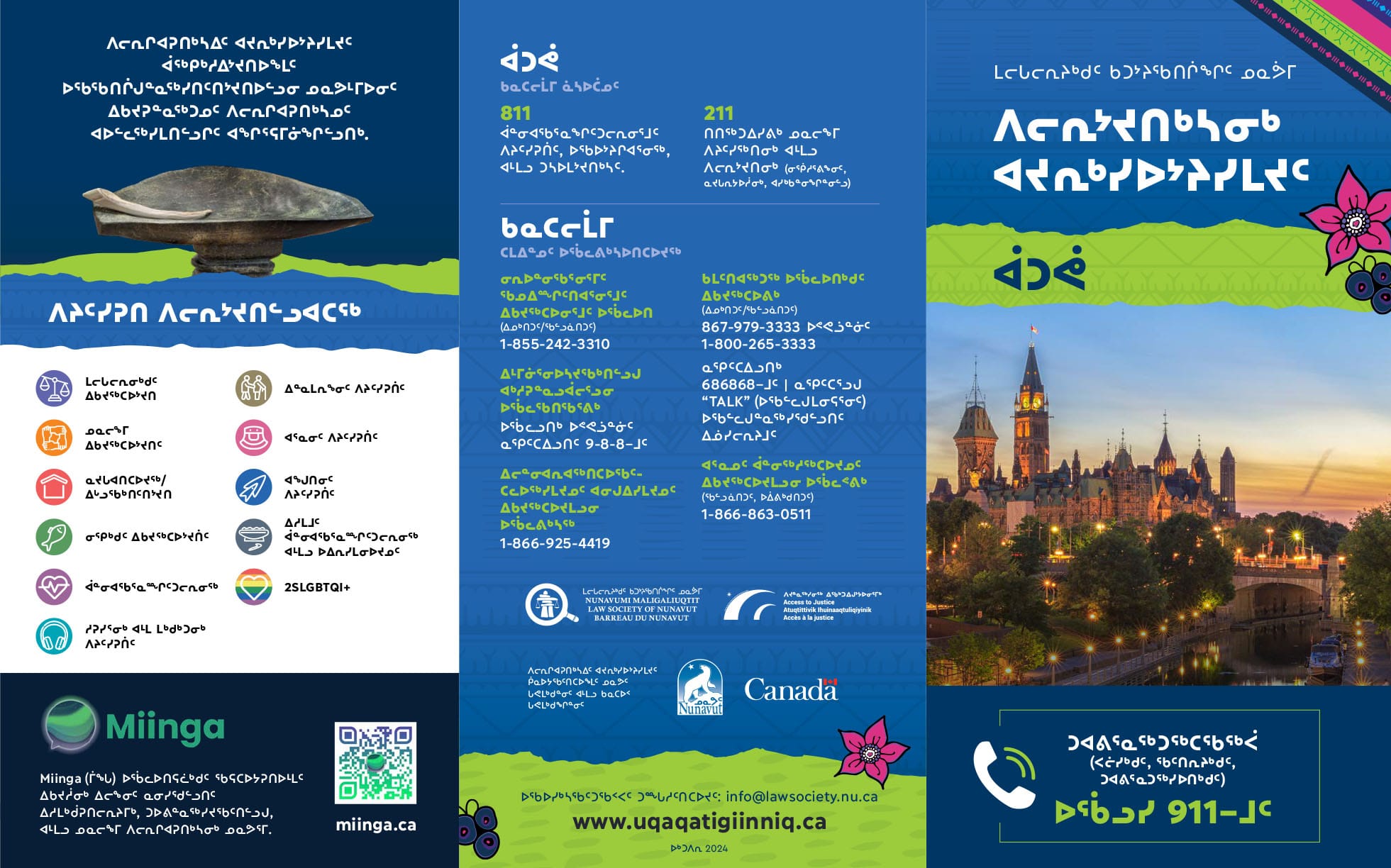Access to Justice Program
Committed to building connections and using a collaborative approach to better respond to the legal needs and interests of all Nunavummiut.
The Law Society of Nunavut is committed to connecting Nunavummiut to relevant resources and information that will help increase their understanding of their rights and get the legal help they need. This will be achieved by providing access to public legal education and information resources, as well as undertaking research and public awareness campaigns regarding legal initiatives relevant to Nunavummiut. Building on the foundation laid by the Access to Legal Knowledge Initiative, the Access to Justice Program, launched in 2015, supports these efforts through the administration of its projects and initiatives.


Family Violence Prevention
Funded by the Government of Nunavut
The goal of this project is to break the silence over family violence in Nunavut. It seeks to both better understand the problem of family violence and to support Nunavummiut who have experienced it or know someone who has. This can be done by helping Nunavummiut to recognize family violence and better understand what they can do about it. A further goal of this project is to understand how the Family Abuse Intervention Act (FAIA) is, or is not, addressing the needs of dealing with family violence in Nunavut.
The Family Abuse Support Program – Toolkit and Training
As an extension of the Law Society of Nunavut’s FAIA research study and awareness campaign, this initiative aims to create a web-based training platform featuring relevant content, resources, presentations, and curricula for both professionals and the public on the topic of family violence prevention. Topics covered in the training include: Safety planning, emergency protection orders, community intervention orders, stalking, and Elder abuse.
The toolkit will launch in Spring 2025 with an in-person training held in Iqaluit and Rankin Inlet.
Gender Based Violence Prevention
Funded by the Government of Nunavut
This project aims to raise awareness and provide public legal education on gender based violence (GBV) prevention as a key policy action to reduce and prevent GBV. Its goal is to change social norms, attitudes, and behaviors, addressing the root causes and risk factors of GBV to ultimately end its devastating impacts. The Law Society of Nunavut will coordinate efforts to bring together various Nunavut organizations—both directly and indirectly involved in violence prevention—through collaborative awareness-raising and information sharing.

Access to Justice (A2J) Community Visits
Through our A2J community visits, we connect members of the justice system with communities across Nunavut to promote legal education and GBV prevention. This includes engaging students in school-based activities and mock trials and offering public legal information workshops.
In 2024, the LSN and our partners engaged over 1,000 Nunavummiut, providing public legal education and information (PLEI) workshops, legal advice, youth-focused activities, and mock trials in the communities of Rankin Inlet, Baker Lake, Cambridge Bay, Gjoa Haven, Pond Inlet, and Arctic Bay.
We’re excited to expand our reach to more communities, continue supporting GBV prevention, and create greater access to legal information and support for all Nunavummiut.
Resources Handbook
The lack of clear communication pathways between service providers leads to preventable delays when supporting victims and survivors of GBV, creating delays and unnecessarily prolonging suffering. Collaborating with key partners and stakeholders, the Law Society of Nunavut has taken the lead on facilitating the creation of a “Resource Handbook”. This tool aims to facilitate change within the justice system to address GBV by establishing and maintaining open lines of communication between multi-level service providers. All information will be updated bi-annually to ensure the resource remains accurate and relevant.
Currently, we have published our Ottawa and Montreal handbooks, with launches for Nunavut, Toronto, Winnipeg, Edmonton, and Yellowknife to take place in the fall of 2025.

Prevention of Harassment in the Workplace
The project seeks to educate people about the different kinds of workplace harassment and violence, whether it is based on gender or other forms of discrimination. In addition, it aims to inform people of their rights and responsibilities, and to offer help to those who experience or know of such harassment.
Through a variety of efforts that include public education, in-person workshops, and pro-bono legal help, Nunavummiut can get more information on how to respond to workplace harassment and violence. These efforts are designed to be trauma-informed and to respond to the specific experiences of Nunavummiut. In this way, the project seeks to support those who have faced harassment or violence or who know someone who has.

Acknowledgments
Many thanks to all of the governmental and non-governmental organizations, law society members, and their employers and staff who support the efforts of Access to Justice. It is because of their dedication and willingness to share information and expertise that we are able to take this next important step. A special recognition to the many law students who during these past years have made significant contributions to keep this program moving forward.
